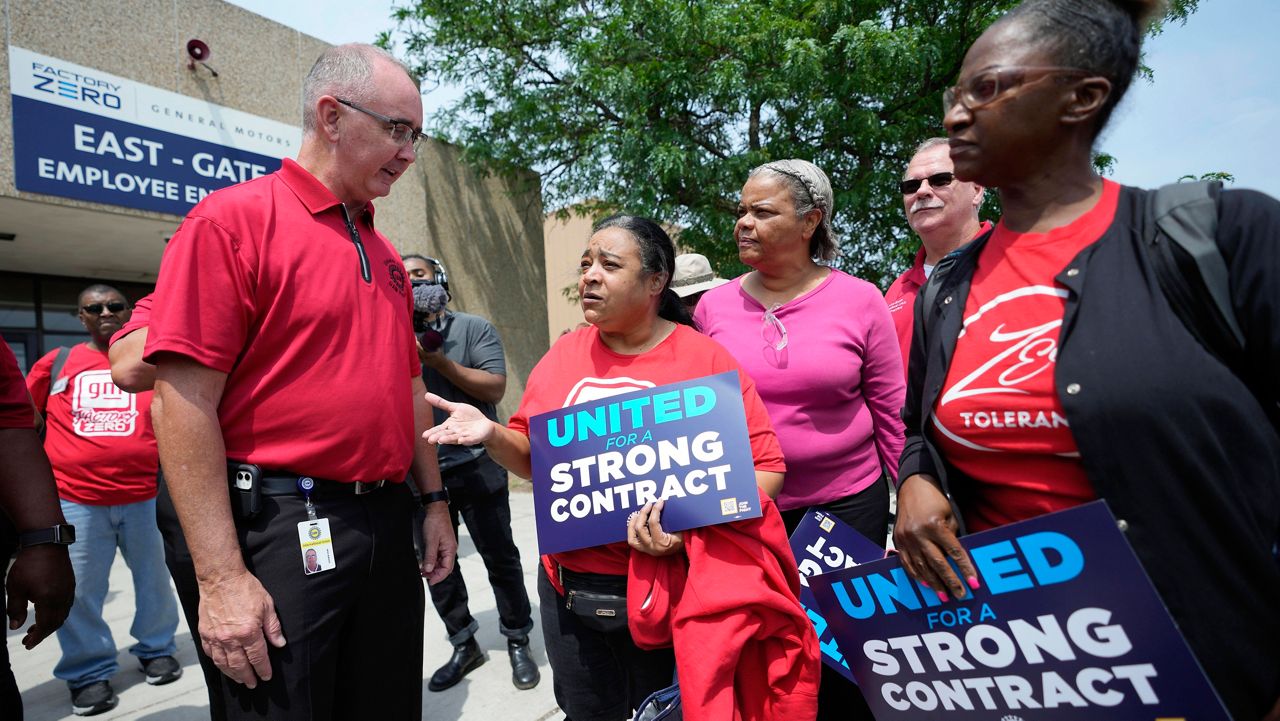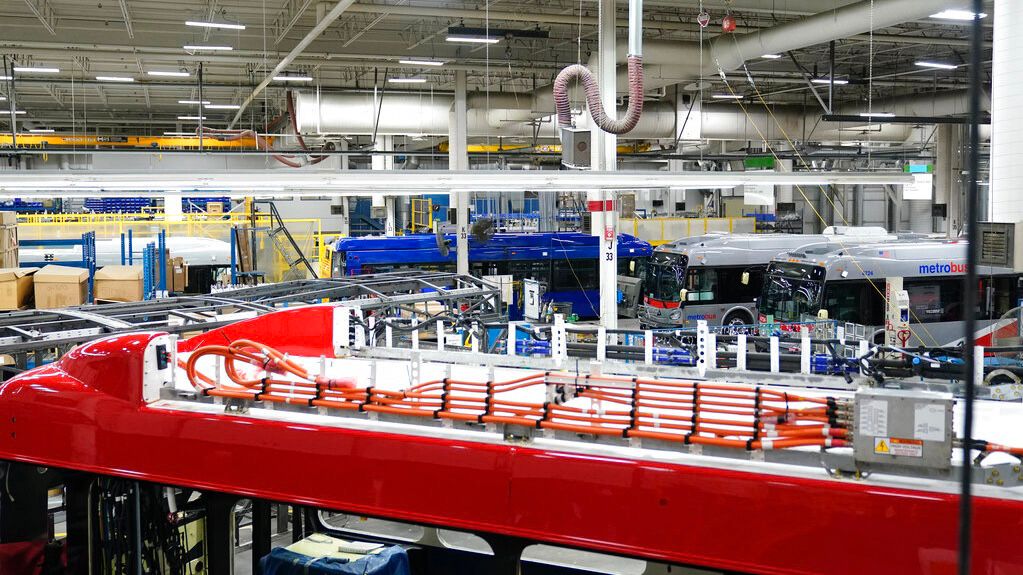As negotiations falter between the United Auto Workers and the Big Three automakers in Detroit, economists predict a 10-day strike could cost the U.S. economy $5.6 billion.
The union representing 143,000 autoworkers and Ford, General Motors and Stellantis have been trying to work out a deal before their current contract expires Sept. 14. The union will vote next week on whether to authorize a strike.
Anderson Economic Group, based in East Lansing, Michigan, said Thursday that $1.49 billion of the losses would come from a strike at Ford Motor Co. Another $1.466 billion would result from a strike at General Motors. And $1.183 billion would come from a strike at Stellantis, which makes Jeep and Ram vehicles. Anderson said the projected losses include worker wages, automaker profits and dealer disruptions.
The last time the UAW went on strike was in 2019 against General Motors. That strike involved 48,000 workers at more than 50 plants for six weeks and prompted the state of Michigan to enter a recession for a quarter.
A strike in 2023 would involve more manufacturers, more workers and more plants, according to Anderson Economic Group President Patrick Anderson.
“If that happens, even a short strike would impact economies throughout Michigan and across the nation,” Anderson said in a statement.
The UAW’s current contract with Ford, General Motors and Stellantis has been in place four years and expires Sept. 14. In July, Fain said the UAW was prepared to strike against the automakers if the companies don’t meet the union’s goals.
Fain has been meeting with each of the Big Three automakers separately since July, presenting them with a list of 10 demands that include a reestablishment of retiree medical benefits, the right to strike over plant closures, limits on the use of temporary workers, more paid time off and increased benefits to current retirees.
Earlier this month, Fain threw a proposed contract from Stellantis into a trash can during a livestream, saying the automaker’s proposal to cut health care coverage, reduce employer 401(k) contributions and increase temporary employees was “a slap in the face.”
Stellantis has said the company needs to cut workers’ pension and health care costs to meet the federal governments’ requirement that 60% of all new passenger vehicles sold in the country be electric by 2030.
With less than a month to go before the UAW contract expires, President Joe Biden weighed in this week, “asking all sides to work together to forge a fair agreement.”
Biden said he supports a fair transition to a clean energy future that ensures jobs with the Big Three automakers pay well enough to support a family. He added that auto companies should honor workers’ right to organize and take every possible step to avoid plant closures. If a job transition is needed, he asked that workers be rehired in the same factories and communities and at comparable wages to where they already work.








